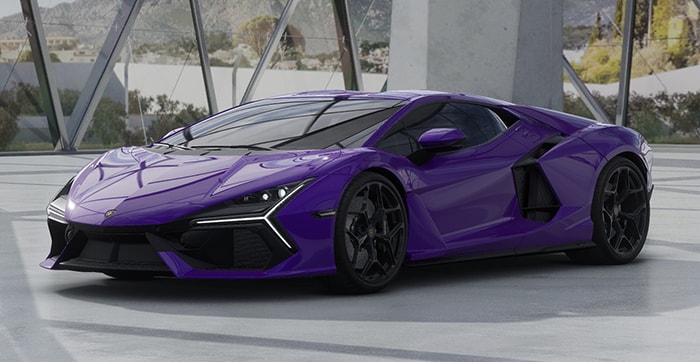
For car enthusiasts, owning an exotic car isn’t just about the thrill of the ride—it's about the beauty, exclusivity, and investment potential. In recent years, exotic cars have shown they can be an impressive asset, not only providing an unforgettable driving experience but also holding and sometimes appreciating in value. Here’s why an exotic car can be one of the best investments for automotive aficionados.
Rarity Drives Value
Exotic cars are produced in limited quantities, making each model inherently rare. Brands like Ferrari, Lamborghini, and Pagani manufacture a limited number of units, often only a few hundred, and even fewer in special-edition trims. This scarcity creates a high demand among collectors and enthusiasts, driving up the value. For example, certain limited-edition Ferraris have seen their value double or even triple over time. The exclusivity of these models makes them highly sought-after, especially when they are kept in excellent condition.
A Legacy of Appreciation
Unlike many vehicles, exotic cars are often engineered to hold value due to their connection to iconic brands and high-performance engineering. When maintained well, specific models have proven to appreciate. Take, for instance, the Ferrari Enzo or the Porsche Carrera GT—both have appreciated significantly over the years and are now worth much more than their original price tags. Because exotic brands have a legacy of creating cars that become classics, they tend to attract collectors looking for long-term investments.
Distinctive Design and Innovation
Exotic cars are crafted with precision, advanced technology, and premium materials that set them apart from conventional vehicles. Every detail, from hand-stitched leather interiors to custom paint jobs, adds a level of sophistication that appeals to connoisseurs. The craftsmanship involved in designing each model can increase its value over time, especially as certain materials and techniques become less common or are discontinued. This commitment to design and performance makes exotic cars valuable for their artistry, engineering, and innovation.
High Demand for Rare Models
Demand for specific exotic cars can surge, especially as certain models become recognized as modern classics. Limited-edition models, or even those that feature specific color schemes or bespoke options, can fetch much higher prices in the secondary market. For example, models like the Lamborghini Aventador SVJ or McLaren P1 have seen increased demand among collectors. When production for these models ceases, the limited supply makes them even more desirable, enhancing their long-term value.
A Resilient Market
The exotic car market has shown resilience, even during economic downturns. While mainstream car prices often depreciate rapidly, the exotic car market has remained relatively stable, and in many cases, values have continued to rise. For instance, data shows that classic and exotic cars have outperformed the stock market in certain periods. Investors looking to diversify their portfolios with tangible assets have found the exotic car market appealing, making it a less volatile investment than traditional vehicles.
Tax Benefits for Collectors
For collectors, there may be additional financial incentives tied to investing in exotic cars. In some regions, certain tax benefits may apply to classic or collectible vehicles, particularly when considered as part of a larger portfolio. Additionally, because exotic cars often become collectibles, owners may benefit from lower insurance premiums for “collector’s insurance,” which can offset maintenance and storage costs over time.
Pride of Ownership and Status Symbol
While financial gain is important, exotic car owners often see added value in the prestige and joy that comes with ownership. For many, an exotic car is more than just an asset; it’s a symbol of personal success and passion. Driving a Lamborghini or Ferrari isn’t just about getting from point A to B—it’s about the thrill, the status, and the sense of being part of an elite community. This intangible value makes exotic cars a unique investment, one that brings both financial and emotional returns.
Future-Proofing with Sustainability
As the market evolves, brands like Ferrari, Porsche, and Lamborghini are investing in high-performance electric and hybrid models. These eco-friendly exotics are not only pushing the boundaries of technology but are also gaining traction with collectors looking toward sustainable alternatives. Hybrid and electric supercars like the Ferrari SF90 and Lamborghini Revuelto could become the next generation’s investment-grade exotics, appealing to both eco-conscious and performance-focused buyers.
Tips for Making Your Exotic Car Investment Count
If you're considering purchasing an exotic car as an investment, here are a few tips to maximize your return:
- Focus on Limited Editions: Models with unique features, limited runs, or custom finishes typically hold value better.
- Maintain Originality: Avoid modifications that may detract from the car’s value. Authenticity is key for collectors.
- Regular Maintenance and Proper Storage: Keep detailed service records and store the car in a climate-controlled environment to prevent wear and tear.
- Invest in High-Quality Insurance: Insure the car as a collectible rather than a daily driver, often at a reduced premium.
Final Thoughts
Investing in an exotic car isn’t for everyone, but for enthusiasts with an eye for performance and exclusivity, it can be incredibly rewarding. These vehicles offer a mix of status, rarity, and financial appreciation that make them one of the best investments for car lovers who value both the thrill of the drive and the potential for a solid return. Whether you’re looking to diversify your investment portfolio or simply enjoy the finer things in life, an exotic car could be a perfect addition to your collection.